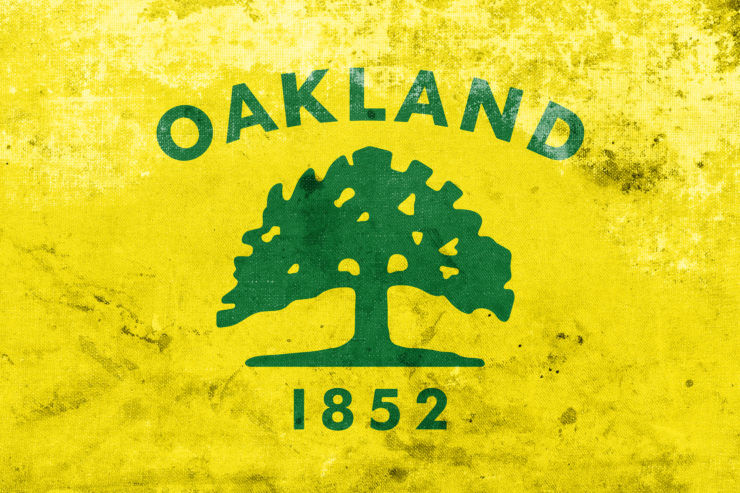
Oakland’s City Council recently passed what is, to our knowledge, a first-of-its-kind ordinance intended to protect residential tenants in the city’s “Green Zone” from being evicted by cannabis businesses (as a resident of Oakland’s “Green Zone,” this is an issue of both personal and professional importance to me). The ordinance passed on its first reading last week, and the second reading will happen today.
The issue of cannabis-fueled residential displacement in Oakland seems to have come to everyone’s attention a few months ago, when a Denver-based cannabis company called Green Sage bought The Oakland Cannery, a community of live-work lofts that house more than 30 artists and makers. The tenants learned from representatives of the company that their intention was to convert the building to commercial use space, and to use it as a cannabis cultivation facility. Residents were told they would not be allowed to stay.
While many within the industry are quick to tout the economic benefits brought about by cannabis legalization (which are undeniable), Oakland is one of the first cities to grapple with the potential negative downstream effects on communities that are suddenly flooded with cannabis business dollars. The City recognizes the Bay Area’s affordability crisis in terms of housing, as well as the importance of “affordable housing and space for artistic and creative enterprises and small economic enterprises and businesses.” The City of Oakland Planning Code allows for a variety of live/work uses in its industrial and commercial zones, which provides important affordable housing and space for these creative and small economic enterprises.
The live/work spaces that the City is seeking to protect are located within the City’s “Green Zone,” which was established in May 2016. Since Spring of 2017, when the City began receiving applications for cannabis businesses, they have received more than eight hundred such applications. In its report, the City identified at least twenty-five permitted live/work properties in the “Green Zone” where cannabis businesses are allowed to situate. The City recognized that these properties, which are located in traditionally industrial areas, tend to be “both more affordable for residents and more conducive to businesses that support artists, makers, and other workers in creative sectors than in other areas of the City that allow more traditional housing and commercial uses.”
As anyone with any experience in vying for a properly-zoned space for their cannabis business in California knows, these spaces are hard to come by, and competition is fierce. The fact that an out-of-state cannabis company purchased The Oakland Cannery does not surprise us, and without intervention by the City, it’s likely that other owners of these live/work buildings would be tempted by the soaring purchase prices commanded by buildings that are zoned for commercial cannabis uses. Buildings in areas of Oakland that were for many years completely undesirable are now quite valuable, if those buildings can be put to use for cannabis cultivation or manufacturing.
In passing this ordinance, the stated purpose of the City Council is to “restrict and prohibit the issuance of cannabis approvals and permits in properties utilized for Work/Live or residential purposes [that existed as of March 6, 2018] to preserve the public peace, health, safety, and general welfare of the citizens and residents of the City of Oakland.” As we stated above, this is the first ordinance we’ve seen that intentionally carves out a cannabis zoning exception for live/work spaces, and given the character of the communities in Oakland that are encompassed by the “Green Zone,” I think this ordinance makes sense. It certainly shows that the City of Oakland continues to regulate cannabis in a way that is both progressive and beneficial to its communities and residents.


